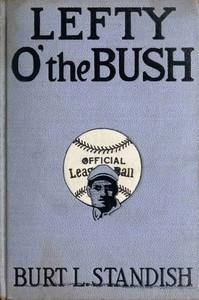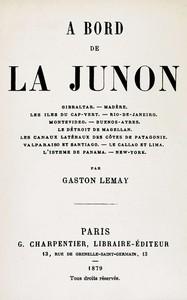Read this ebook for free! No credit card needed, absolutely nothing to pay.
Words: 39773 in 11 pages
This is an ebook sharing website. You can read the uploaded ebooks for free here. No credit cards needed, nothing to pay. If you want to own a digital copy of the ebook, or want to read offline with your favorite ebook-reader, then you can choose to buy and download the ebook.


: The battle of the Swash and the capture of Canada by Barton Samuel - United States History; Imaginary wars and battles Fiction; Speculative fiction; Canada Annexation to the United States Fiction
Chapter
Introduction
Appendix
INTRODUCTION.
The only apology which I offer for this authentic account of an event which , can scarcely be supposed to possess much interest for the reader of to-day, is, that having been a participant in the battle myself, I feel a sort of pride in having an accurate and complete account of it handed down to posterity.
In my humble judgment no such account has ever yet appeared; and although I am but indifferently equipped for the task--having dabbled but slightly in literature, during my busy life of three score and ten years,--yet I trust that my earnest desire to relate the facts just as they occurred--and which I propose to do, without fear or favor--will atone for any shortcomings from a purely literary point of view. Although I have said that no accurate and complete narrative of this occurrence has ever been published, the reader must not therefore assume that there exist no published accounts of it whatever. On the contrary, it has been described more or less at length, by so many different writers, both in transitory and permanent form, that my chief embarrassment arises rather from a superabundance than from a paucity of materials.
In the library of the N.Y. Historical Society are to be found no less than ninety-seven books and pamphlets giving what purport to be "full, true and particular" accounts of the attack upon New York by the British fleet in the year 1890.
The titles of some of these contributions to contemporaneous history are decidedly amusing and suggestive of the sensational spirit which was such a marked characteristic of the general literature, and especially of the newspaper press of that period.
For instance, we have among them, "The New Armada;" "The British Blackmailer;" "Modern Piracy;" "The Doom of the Iron Clads;" "The Disappearance of the British flag from North America;" and one, more pretentious than the rest, is entitled "An inquiry into the causes which led to the acquisition of Canada by the United States of America."
In addition to these numerous books and pamphlets, the newspapers of the period contained page after page of the most vivid and sensational accounts, in which truth and falsehood, and sense and absurdity, are so evidently mingled, that no conscientious historian would be willing to utilize them as reliable authorities. Nevertheless, a perusal of them even at this late day, may be found interesting to many of my readers, and as they are kept on file in most of the leading city libraries, they are within easy reach of all.
The reader of to-day will be vastly amused in looking over these old journals, at the evidences to be found on every page, and in almost every column, of intense and bitter rivalry and jealousy between their several editors and proprietors. Indeed the journalistic world at that period seems to have been suffering from an absolute epidemic of sensationalism, which extended not only to the reading matter, but to the "make up" as well; and in addition to the prurient details of social scandals, divorce proceedings, and horrible crimes, the reader's attention was sought to be attracted by glaring and suggestive head lines, such as would be tolerated in no respectable metropolitan journal of the present day. As an evidence of how our tastes are influenced by our surroundings, I may here state, that while I am now shocked at the total lack of good taste and the superabundance of sensational vulgarity displayed by most of the newspapers of that day, yet I cannot remember that I regarded them with any such feelings at that time, although I was a man, and certainly is competent a judge of propriety then, as I am now. But this is to be a history, not a moral treatise.
With such a mass of material at my command, it will be apparent that it has been no slight task to sift out the grain from the chaff, and to condense the vast accumulation of authorities into a comparatively brief volume like this.
Free books android app tbrJar TBR JAR Read Free books online gutenberg
More posts by @FreeBooks









